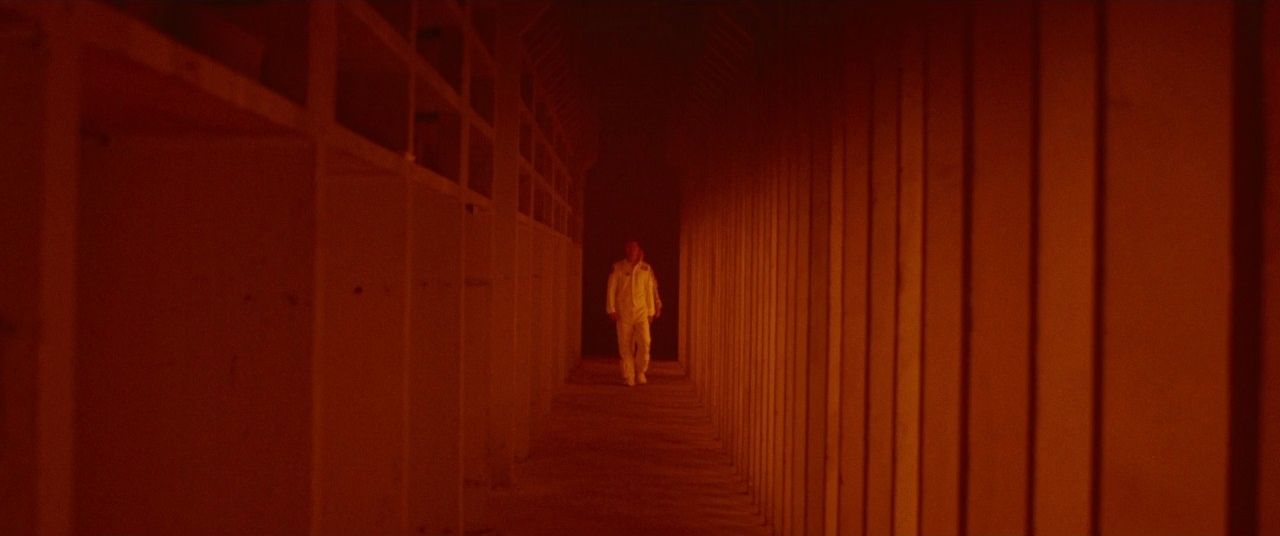Is Ad Astra Brad Pitt's second entry to the Oscars this year?

Originally published on 25/09/19 for The Express Tribune
Since the release of Stanley Kubrick’s seminal sci-fi opus 2001: A Space Odyssey in 1968, the studio-mandated space-bound epic has been a staple of yearly theatrical releases. They occupy a spectrum ranging from Andrei Tarkovsky’s existential art film Solaris (1971) to the genre-defining franchise kick-starter Star Wars (1977). In the past five years alone, productions such as Interstellar (2014), The Martian (2015), The Critically Maligned Passengers (2016), Star Wars: The Last Jedi (2017) and First Man (2018) have proven that the market for this specific sub-genre persists with the aid of general audiences. And, like clockwork, another contender comes forth in the form of James Gray’s Ad Astra, starring Brad Pitt.
On its surface, Ad Astra seems to accomplish little in differentiating itself from its prior counterparts, notably Christopher Nolan’s Interstellar and Alfonso Cuaron’s best picture-nominated Gravity. Set in the near future, Ad Astra revolves around Roy McBride played by Pitt. In what seems to be his second possible Oscar-nominated performance this year, Pitt voyages to the farthest reaches of the solar system to locate his missing father, Clifford McBride played by Tommy Lee Jones. Despite being similar to its contemporaries, as Ad Astra unfolds, it combines its derivatives into a film with an identity far more distinct.
Ad Astra thrusts audiences into the near future, where the corporations that continue to leech off the masses on Earth have directed their focus to the stars. In spite of its protagonist being a product of the military-industrial complex, the film comments succinctly, and often bluntly, on both the ever-evolving machinations of mankind, and the monotony of the human psyche.
Tonally, the initial descriptions of the film as “2001 meets Apocalypse Now” ring true. Reverberations of Kubrick’s prescient epic echo across the film’s visual composition and vision of the future. Moreover, like Apocalypse Now, it employs a narration from the protagonist. That acts as a psychological anchor in the film’s voyage of neon-drenched, interstellar lunacy, in which its characters fling themselves into the far reaches of space to avoid confrontation with their failures.
Cinematographer Hoyte Van Hoytema whose credits include Interstellar, Her, and Dunkirk, frames the landscape of space not as a thrilling new frontier waiting to be explored, but as a chilling, uncertain void that acts as a representation of our ever-growing isolation.
Long stretches of Ad Astra’s runtime depict stark-white capsules hurtling across unfathomable, silent oblivion. Evocative in its style, the film visually homages 2001 in its icy, glaring lighting and brutalist architecture; yet, its slowly fading hues of red and blue evoke the treacherous flares of Apocalypse Now.
In terms of its screenplay, the movie hovers precariously between earnest, gaudy sentimentality and taciturn logic. For the most part, it manages to maintain a balance between the two, although it leans to the latter in its climax. The running monologue delivered by Roy juxtaposes the often ludicrously mechanical cycle of military organisation with his barely concealed disaffection. Even Thomas Pruitt played by Donald Sutherland, a decorated veteran of the space program and expected to be its most outspoken advocate, is subtly critical of humanity’s unrestrained colonisation. Yet however analytical Ad Astra’s screenplay may be, it never strays from its emotional core: the often complicated ties that bind parent and child.
If Ad Astra were to only be critically acclaimed for a single aspect, it would be its score. Celebrated composer Max Richter, whose mournful symphony, On the Nature of Daylight accompanied by both Shutter Island and Arrival, crafts an elegiac tribute to the wonders of space exploration. Along with To The Stars, contrasted with haunting synth drones during an action sequence on the moon, both of which mirror the protagonist’s psychological state.
The mention of the name “Brad Pitt” typically evokes admiration, weariness, or a mixture of both. As one of the few remaining actors whose name is incentive enough for potential audiences to flock to theatres, he represents a dying breed of performers whose talent can live up to their reputation. If his charismatic turn in this year’s Once Upon A Time In…Hollywood reiterates upon his surface charm as a leading man, then Ad Astra is a reminder of the dramatic depths Pitt is capable of reaching. Like Ryan Gosling’s restrained depiction of Neil Armstrong in First Man, Pitt's portrayal of Roy McBride is an understated one.
Beneath his veneer of carefully composed stability lies an unaddressed tempest of grief, which gradually shatters the illusion of calm. Introspective in its nature, Pitt’s performance provides a view of the illustrious explorers of space whose achievements we deify. It hypothesises that they are cowards, attempting to escape responsibility for those closest to them on Earth, and confront their depression through engulfing it in fear. Roy’s absent father, Clifford McBride, is portrayed with notable theatrical efficacy by Jones, whose character is a constant reminder of the fact that astronauts, no matter their proficiency, are fallible beings that are always inescapably close to catastrophe.
Remarkably, although Pitt is the film’s centre, there is no lack of nuance in the portrayals of supporting characters. Hellen Lantos played by Ruth Negga is an exhibition of scarcely obscured rage. Whilst both Eve played by Liv Tyler and Pruitt, despite having far less screen-time than Pitt, act as foils and parallels to the film’s reticent protagonist.
Ultimately, Ad Astra is a melancholy parable on the vast emptiness of the cosmos, and the effects traversing it has on men and women that drive them to desperation. What, from the silent oblivion of blackness, could call to individuals to hurl themselves into the unknown at the cost of all that they care for? That is a question that audiences must look inwards to answer.
